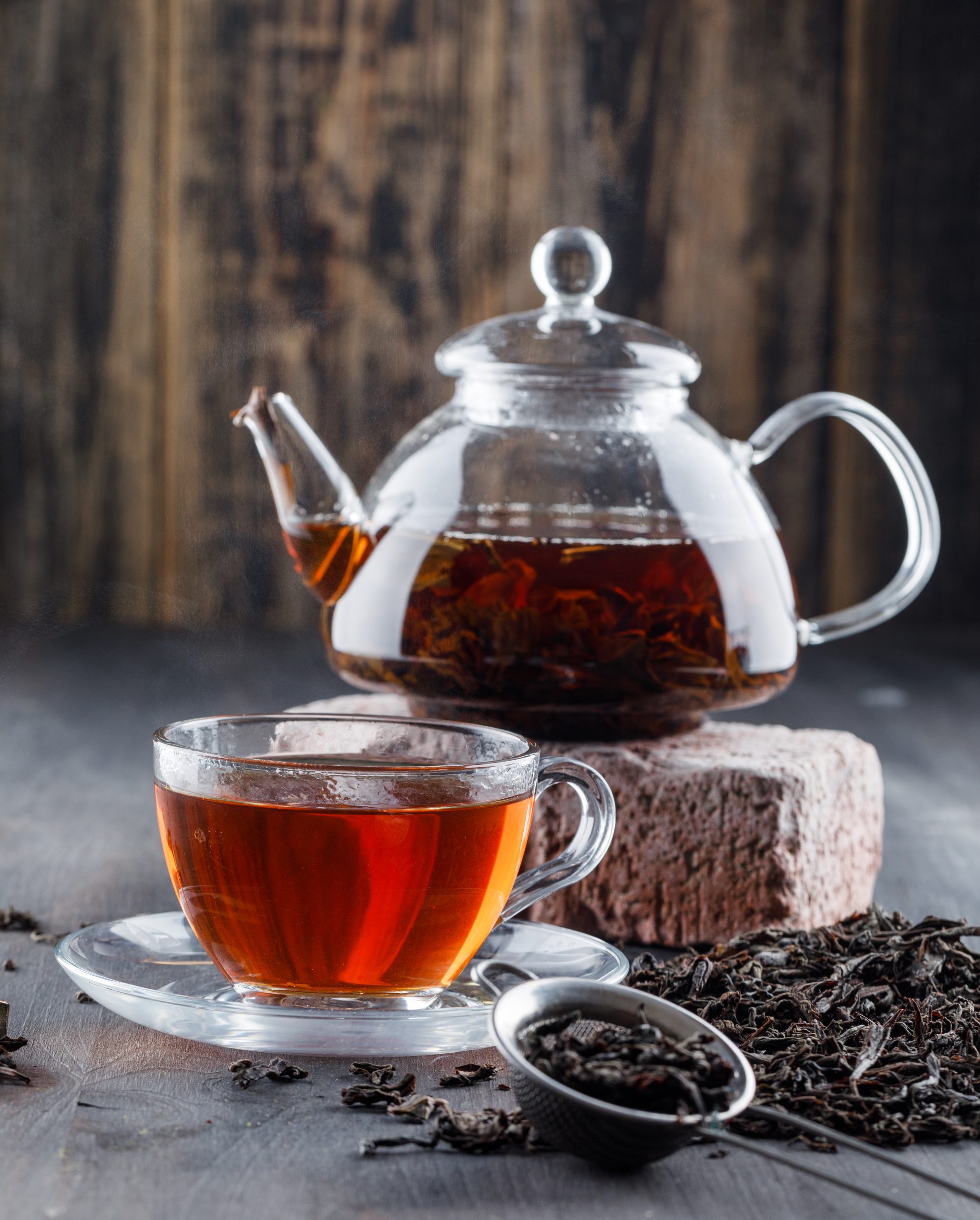The World of Tea Lovers: A Deep Dive into the Fascination with Tea
Tea isn’t just a drink; it’s a ritual, a culture, and a passion that has transcended centuries, continents, and cultures. For tea lovers, a cup of tea goes far beyond taste or a quick pick-me-up; it is a moment of calm, a way to connect with others, and even a window into the history and traditions of different countries. Whether it’s black, green, oolong, or herbal, tea offers an experience that resonates deeply with its fans, each sip holding stories and memories.
The Global Origins of Tea
Tea’s history traces back to ancient China, where legend has it that Emperor Shen Nong discovered tea in 2737 BCE when leaves from a wild tree blew into his pot of boiling water. From there, tea culture spread across Asia and, eventually, the world. Each culture has embraced tea with its unique customs: Japanese tea ceremonies emphasize simplicity and mindfulness, British afternoon tea speaks to a more social and elegant affair, and Indian chai brings robust flavors and warmth to every street corner. The World of Tea Lovers: A Deep Dive into the Fascination with Tea
Tea isn’t just a drink; it’s a ritual, a culture, and a passion that has transcended centuries, continents, and cultures. For tea lovers, a cup of tea goes far beyond taste or a quick pick-me-up; it is a moment of calm, a way to connect with others, and even a window into the history and traditions of different countries. Whether it’s black, green, oolong, or herbal, tea offers an experience that resonates deeply with its fans, each sip holding stories and memories.
The Global Origins of Tea
Tea’s history traces back to ancient China, where legend has it that Emperor Shen Nong discovered tea in 2737 BCE when leaves from a wild tree blew into his pot of boiling water. From there, tea culture spread across Asia and, eventually, the world. Each culture has embraced tea with its unique customs: Japanese tea ceremonies emphasize simplicity and mindfulness, British afternoon tea speaks to a more social and elegant affair, and Indian chai brings robust flavors and warmth to every street corner.
Today, tea is the second most consumed beverage in the world, only after water. But despite its wide-reaching appeal, tea remains a deeply personal experience for its fans—an experience shaped by preferences for flavors, brewing methods, and traditions.
The Health Benefits Tea Lovers Swear By
For many tea lovers, the health benefits of tea are a significant part of its appeal. Research has shown that teas, especially those derived from the Camellia sinensis plant (black, green, white, and oolong teas), are rich in antioxidants and can offer a range of health benefits. Green tea, for instance, is well-known for its high levels of antioxidants, which can help reduce the risk of heart disease and aid in weight loss. Black tea, on the other hand, is celebrated for its ability to improve gut health and reduce blood pressure.
Herbal teas, like chamomile and peppermint, have their benefits as well, such as aiding in digestion, reducing anxiety, and promoting better sleep. For tea lovers, knowing that each cup offers these perks is a gratifying bonus to their daily ritual.
The Art and Science of Brewing
True tea aficionados appreciate the fine art of brewing the perfect cup. Unlike coffee, which often has one main method of preparation, tea requires careful consideration of water temperature, steeping time, and quality of leaves. Different types of tea demand different approaches: green tea is best brewed with water that’s below boiling to avoid bitterness, while black tea can handle higher temperatures to bring out its bold flavors.
Moreover, tea lovers often develop specific rituals around brewing, from choosing the perfect teapot to timing the steep precisely. These little details add to the experience, making each cup not just a beverage but an art form that rewards patience and attention to detail.
Types of Tea Enthusiasts: From Casual Sippers to Connoisseurs
Within the world of tea lovers, there are different types of enthusiasts. Some enjoy tea for its soothing effects or as an alternative to coffee, while others treat tea as a hobby, investing in high-quality leaves, rare varieties, and special brewing equipment. There are even “tea sommeliers,” professionals who study and promote the understanding of tea, much like wine sommeliers. They can identify the nuances in flavor between a Darjeeling and an Assam or discuss the terroir of specific regions.
Social Connections and Tea Communities
For many, tea isn’t just a solitary experience but a way to connect with others. Tea lovers gather at local tea shops, attend tea festivals, or join online communities to share their passion, trade brewing tips, and discover new flavors. The resurgence of traditional tea houses and specialty tea shops across the world speaks to this communal love of tea, offering spaces for people to gather, relax, and enjoy a shared experience.
The rise of “tea tourism” is another phenomenon worth noting. Tea lovers travel to places like China, Japan, and India to experience traditional tea-growing regions firsthand. This trend highlights not only the devotion that tea lovers have to understanding their drink but also the connection they feel to the origins and history of tea.
Why We Love Tea: A Personal Connection
Ultimately, the appeal of tea lies in the personal connection that each tea lover has to the drink. For some, tea is a daily ritual that brings comfort and stability; for others, it’s a world of endless flavors and experiences to explore. And for all, it’s a reminder of the beauty in simplicity, the elegance of tradition, and the pleasure of slowing down.
So whether you’re a seasoned tea lover with an extensive collection or a casual drinker who enjoys a cup now and then, tea offers something special. It’s a small luxury, a moment of calm, and a rich connection to the past, present, and future.
Today, tea is the second most consumed beverage in the world, only after water. But despite its wide-reaching appeal, tea remains a deeply personal experience for its fans—an experience shaped by preferences for flavors, brewing methods, and traditions.
The Health Benefits Tea Lovers Swear By
For many tea lovers, the health benefits of tea are a significant part of its appeal. Research has shown that teas, especially those derived from the Camellia sinensis plant (black, green, white, and oolong teas), are rich in antioxidants and can offer a range of health benefits. Green tea, for instance, is well-known for its high levels of antioxidants, which can help reduce the risk of heart disease and aid in weight loss. Black tea, on the other hand, is celebrated for its ability to improve gut health and reduce blood pressure.
Herbal teas, like chamomile and peppermint, have their benefits as well, such as aiding in digestion, reducing anxiety, and promoting better sleep. For tea lovers, knowing that each cup offers these perks is a gratifying bonus to their daily ritual.
The Art and Science of Brewing
True tea aficionados appreciate the fine art of brewing the perfect cup. Unlike coffee, which often has one main method of preparation, tea requires careful consideration of water temperature, steeping time, and quality of leaves. Different types of tea demand different approaches: green tea is best brewed with water that’s below boiling to avoid bitterness, while black tea can handle higher temperatures to bring out its bold flavors.
Moreover, tea lovers often develop specific rituals around brewing, from choosing the perfect teapot to timing the steep precisely. These little details add to the experience, making each cup not just a beverage but an art form that rewards patience and attention to detail.
Types of Tea Enthusiasts: From Casual Sippers to Connoisseurs
Within the world of tea lovers, there are different types of enthusiasts. Some enjoy tea for its soothing effects or as an alternative to coffee, while others treat tea as a hobby, investing in high-quality leaves, rare varieties, and special brewing equipment. There are even “tea sommeliers,” professionals who study and promote the understanding of tea, much like wine sommeliers. They can identify the nuances in flavor between a Darjeeling and an Assam or discuss the terroir of specific regions.
Social Connections and Tea Communities
For many, tea isn’t just a solitary experience but a way to connect with others. Tea lovers gather at local tea shops, attend tea festivals, or join online communities to share their passion, trade brewing tips, and discover new flavors. The resurgence of traditional tea houses and specialty tea shops across the world speaks to this communal love of tea, offering spaces for people to gather, relax, and enjoy a shared experience.
The rise of “tea tourism” is another phenomenon worth noting. Tea lovers travel to places like China, Japan, and India to experience traditional tea-growing regions firsthand. This trend highlights not only the devotion that tea lovers have to understanding their drink but also the connection they feel to the origins and history of tea.
Why We Love Tea: A Personal Connection
Ultimately, the appeal of tea lies in the personal connection that each tea lover has to the drink. For some, tea is a daily ritual that brings comfort and stability; for others, it’s a world of endless flavors and experiences to explore. And for all, it’s a reminder of the beauty in simplicity, the elegance of tradition, and the pleasure of slowing down.
So whether you’re a seasoned tea lover with an extensive collection or a casual drinker who enjoys a cup now and then, tea offers something special. It’s a small luxury, a moment of calm, and a rich connection to the past, present, and future.






